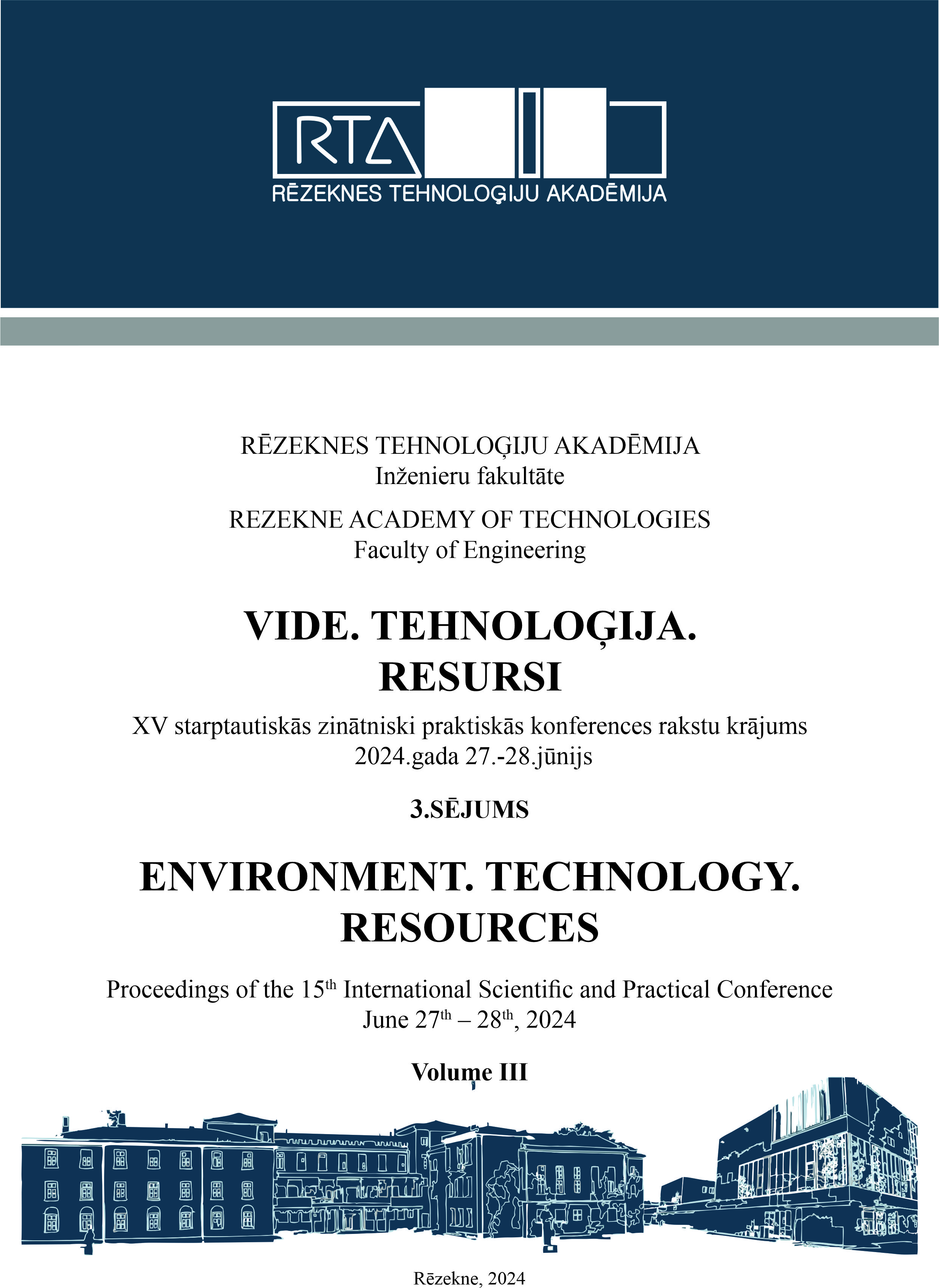EVALUATION AND STRATEGY SELECTION IN THE ANTI-CRISIS MANAGEMENT OF THE ENERGY SECTOR INDUSTRY
DOI:
https://doi.org/10.17770/etr2024vol3.8158Keywords:
anti-crisis management, energy sector, preventive measures, strategy selectionAbstract
This paper examines the significance of evaluation and strategy selection in the anti-crisis management of the energy sector industry. In a volatile and rapidly evolving energy industry landscape, making informed choices regarding management strategies becomes crucial for ensuring the efficient and sustainable operation of energy companies. By analyzing the current context and employing relevant theoretical models and concepts, the article provides an overview of key aspects related to the evaluation and strategy selection in the anti-crisis management of the energy sector industry.
References
F. Cucchiella, D’Adamo, I. and Gastaldi, M. 2015. Financial analysis for investment and policy decisions in the renewable energy sector. Clean Techn Environ Policy 17, pp. 887–904, DOI: 10.1007/s10098-014-0839-z.
S.E. Hosseini, 2020. An outlook on the global development of renewable and sustainable energy at the time of Covid-19. Energy Research & Social Science 68, DOI: 10.1016/j.erss.2020.101633.
L.A. Kostyrko, 2015. Formation of strategy of anti-crisis financial management of the enterprises in the conditions of uncertainty analytical maintenance of management. Chasopys ekonomichnykh reform 4, pp. 61–69.
R. Kothari, R. 2017. Financial management: a contemporary approach. Los Angeles: SAGE, pp. 658–666.
P., Crifo, Roudaut, G., 2022, 12, 1227-1258, Economic Crisis and Corporate Governance: How Can Board Independence and Expertise Maximize the Firm Value?
R. Sanchis et al. 2020 – Sanchis, Canetta, L. and Poler, R. 2020. A conceptual reference framework for enterprise resilience enhancement. Sustainability 12(4), 1464, DOI: 10.3390/su12041464.
A.M. Shtanghret, 2016. Anti-crisis technologies in the management of economic security of the enterprise. Lviv: Ukr. akad. Drukarstva, 249 p.
O.O., Tereshchenko, and Pavlovsky, S.V. 2016. Improving the financial mechanism of anti-crisis management of the enterprise. Finansy Ukrainy 6, pp. 108–123.
V. D., Gordienko, Vorob'eva, N. V., Makhonich, I. V., Rubanov, M. N., 2022, Theory and practice management, Lugansk – Krasnoyarsk, ISBN 978-5-86433-922-0
O.A. Baranovsky 2018. Theoretical aspects of assessing the financial stability of the enterprise. Ekonomika i suspiljstvo 15, pp. 206–212
H. Doroshuk, 2021, Prospects and efficiency measurement of artificial intelligence in the management of enterprises in the energy sector in the era of Industry 4.0. Polityka Energetyczna – Energy Policy Journal 24(4), pp. 61–76, DOI: 10.33223/epj/144083
S. Khalatur et al. 2020 – Khalatur, S., Kriuchko, L. and Sirko, A. 2020. World experience adaptation of anti-crisis management of enterprises in the conditions of national economy’s transformation. Baltic Journal of Economic Studies 6(3), pp. 171–182, DOI: 10.30525/2256-0742/2020-6-3-171-182.
N. Kuzmynchuk et al. 2021 – N. Kuzmynchuk, Kutsenko, T., Zyma, O., Terovanesova, O. and Bachkir, I. 2021. Paradigm towards ensuring of energy saving in the crisis management conditions in the aspect of sustainable environmental development. E3S Web Conf. 255, 01022, DOI: 10.1051/e3sconf/202125501022.
R. Meiste and Jakstiene, S. 2015. Crisis Diagnosis in Anti-Crisis Management Process in a Company.Oeconomia Copernicana 6(4), pp. 49–58, DOI: 10. 12775/OeC.2015.028.
N. Mocanu, 2018. Implementation of Anti-Crisis Management Technologies. International Journal of Innovation in the Digital Economy (IJIDE), IGI Global, 9(4), pp. 11–23, DOI: 10.4018/IJIDE.2018100102.
Downloads
Published
Issue
Section
License
Copyright (c) 2024 Marina Marinova-Stoyanova

This work is licensed under a Creative Commons Attribution 4.0 International License.



